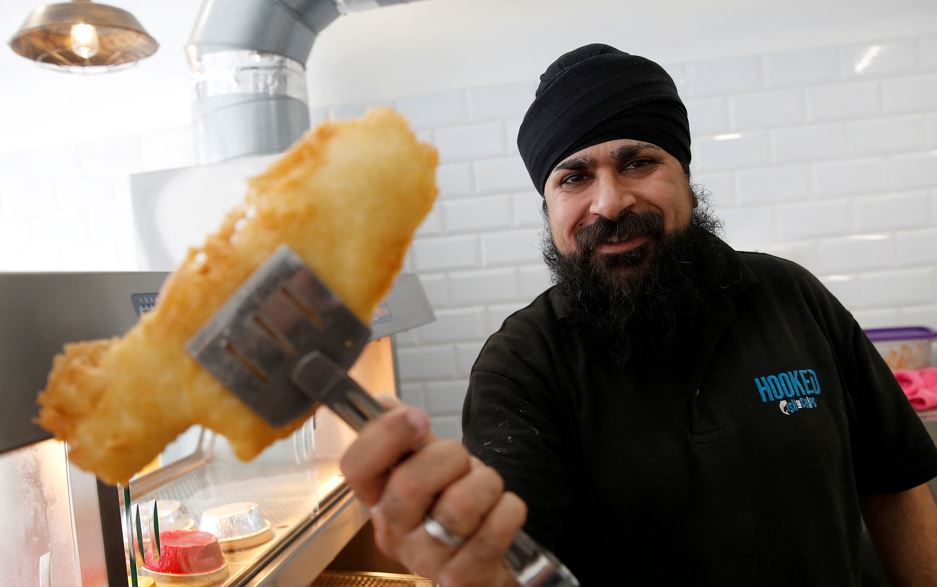- Monday, June 30, 2025

By: Shelbin MS
AT west London’s Hooked Fish and Chips, Bally Singh is struggling to keep the tills ringing for a British tradition, with prices sky-rocketing for fish, potatoes, cooking oil and even the flour used for the batter the dish is cooked in.
Cranking up their bubbling oil friers only to see customers stay at home, Singh and thousands of other normally thriving “chippies” across the island nation are navigating the economic fallout of the Ukraine war, the coronavirus pandemic and Brexit.
“Fish prices have gone up extortionately; oil prices have gone up extortionately; and everything across the whole spectrum that we sell has gone up extortionately,” Singh said.
A third of fish and chip shops are at risk of going bust this year due to a “perfect storm” of price pressures, according to insolvency firm Company Debt.
In just a year, prices for Britain’s favourite fish – cod and haddock – are up 75 per cent, sunflower oil is up 60 per cent, and flour is up 40 per cent, Company Debt said.
Inflation reached a 40-year peak of 9 per cent in April, the highest in the G7, and is projected to rise further.
Cod and chips in Singh’s shop now costs £9.50, compared to £7.95 a year ago. And Singh said if he passed on all the higher costs, the price would be closer to £11.
“We’re finding it a struggle to keep our prices reasonable and competitive compared to other fast foods that are in the area, and we’ve actually seen a decline in fish sales and customers walking through the door.”
In the southern seaside town of Swanage, customers said Britain’s inflation problem meant making hard choices.
“It’s alright for me to go in there and get one portion for myself, but that was £11 just for one person,” said Paula Williams, 66, a carer from Weymouth, on a bench outside the Fish Plaice shop.
“When you’ve got a group of five or six, that’s probably more expensive than going to a restaurant.”
A combination invented 160 years ago
Battered fish and fried chips, the chunky equivalent of fries in the US, have fuelled Britons since the combination was invented 160 years ago.
The meal is such a staple that unlike other food in Britain, it was not rationed during the world wars. Chippies, with their distinctive smell of oil and vinegar, remain a presence in most towns.
Some of the recent difficulties for fish and chip shops began after Brexit, distant-waters trawler company UK Fisheries said, estimating that the amount of Arctic cod Britain is allowed to catch in 2022 reduced to around 40 per cent of what it was before leaving the European Union.
Russia’s invasion of Ukraine has driven up fuel and electricity prices, further increasing the cost of catching, and frying, fish. The war has sent cooking oil, fertiliser and flour prices higher too.
Cod and haddock are sourced in the Barents Sea, north of Norway and Russia, and the war has heightened uncertainty over those supplies.
In March, the British government listed Russian white fish as among goods to be hit with a 35 per cent tariff as part of sanctions in response to the invasion of Ukraine. It has paused the move, for now, while the impact is investigated.
Sunflower oil is the principle agricultural commodity the UK imports from Ukraine and the government says it is working to substitute it with other vegetable oils: for instance, receiving extra rapeseed shipments from Australia after a strong harvest there.
Footfall data from Springboard shows shopper numbers in British high streets are 15 per cent down from 2019, pre-pandemic levels.
(Reuters)